Editor’s note: Welcome to our annual celebration of women leadership in the supply chain. You’ll find these leaders come from many backgrounds, with many different experiences and mentors. But they share a few things in common: Resiliency. Collaboration. Intentionality. Enjoy their stories.
December 2021 – The Journal of Healthcare Contracting

Katie Arnett: Vice President and Chief Patient Experience Officer, King’s Daughters Medical Center, Ashland, Kentucky
Allison P. Corry: Assistant Vice President, Procurement, Supply Chain Organization, Intermountain Healthcare, Salt Lake City, Utah
Rosa Costanzo, CMRP, CPPB, CPSM: Senior Vice President of Strategic Sourcing & Supply Chain Management/Chief Procurement Officer, Jackson Health System, Miami, Florida
Haley Addis: Pharm.D, Vice President, Clinical Resource & Account Management at HealthTrust
Jessica Daley: Chief Pharmacy Officer and Group Vice President of Supply Chain at Premier Inc.
Pam Esper: Executive Director Strategic Sourcing & Contracting, Supply Chain Management, Piedmont Healthcare, Atlanta, Georgia
Nattie Leger: Vice President of Supply Chain Value and Clinical Performance, Ochsner Health, New Orleans, Louisiana
Shaleta Dunn Vick: Associate Vice President, Member Diversity and Community, Vizient, Inc.
Katie Arnett
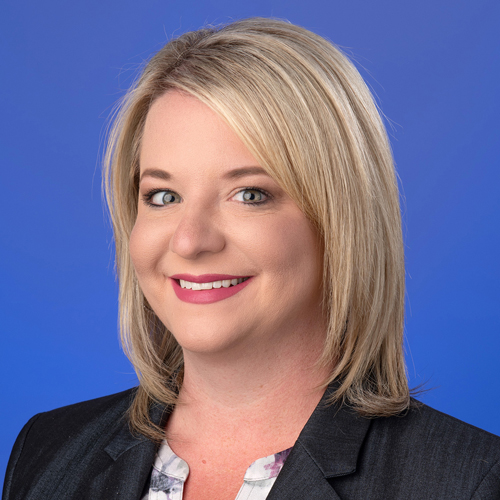
Vice President and Chief Patient Experience Officer, King’s Daughters Medical Center, Ashland, Kentucky
The Journal of Healthcare Contracting: What are the characteristics of a successful supply chain leader in today’s marketplace?
Arnett: I think if the pandemic has taught us anything, the need for supply chain leaders to be agile, resourceful and servant leaders is key for navigating the many challenges our industry has been through. Although challenging at times, the opportunity to provide support and guidance to the team is very rewarding, creates a strong synergy and cohesive dynamic within the organizational supply chain.
JHC: What is the most interesting/challenging project you’ve worked on recently, or an initiative you look forward to working on?
Arnett: We’ve made strides with engaging internal subject matter experts in supply contracting to maximize contract value and aide in decision support for our many strategic initiatives around cost containment and variation while working together collaboratively to bring innovative quality care to our community. I look forward to our continued commitment to our local economy to buy local and engage our patient/family advisory panels in our design, selection and value their feedback for continuous improvement.
JHC: What is the best piece of wisdom/advice you’ve received in your career?
Arnett: I’ve had many great mentors throughout my career but remember several pieces of key advice that I’ve shared with others and do my best to practice as I continue to grow as an executive leader. As a new supply chain leader, I really found strength and comfort in the approach our CFO took. She simply said, you are going to make mistakes and that’s OK. Simple but profound for me. I always felt like I could work through anything with her and always found myself leaving her office or phone call feeling like we were in it together and would find a way to learn and improve through any circumstance.
The second piece of wisdom was to listen more than speak. As I practiced this, I found that my role many times is to learn and see what I can do to help ultimately fulfill the organization’s mission and take care of our patients, team and communities we serve – To Care. To Serve. To Heal. By doing this, I’m able to engage team members, leaders, providers, patients, families and external partners in the solution and work hard to help, improve, learn from and better serve them because we all have the same desire and intent. Healthcare is dynamic and complex, it often takes examining any process or impending decision from multiple angles.
JHC: What advice would you give to other women who are pursuing careers in supply chain?
Arnett: Always be learning, listening and serving others. Supply chain is broad and ever changing, so you must adapt and never give up. Build a team with bench strength that will build strength where your opportunity to grow is as you assess, with your team, the need to deliver the desired mission of the supply chain enterprise they help build and grow.
JHC: What one thing makes you proud?
Arnett: My family. I grew up in this community and organization my whole life. I couldn’t be more proud to serve them and I work hard to make them proud every day. My mother has been a nurse in our community over 40 years and I’ve grown up seeing the dedication and pride she has for her profession. I want my 7-year-old to see the same commitment and desire giving back to our community as they have given to us.
JHC: Who do you look up to for inspiration and mentorship?
Arnett: I look to many. Our hard-working heroes on the front line, providers and support team. Every role is important, valued and I’m inspired by each of them. Our patients who trust and choose us to receive care. We work hard to earn that trust. My husband who is the most patient man alive and my constant support system. My parents who embody every lesson they taught me by their daily example. My 7-year-old Lila who teaches me who I want to be every day and makes me strive to be better. She believes she can change the world. I believe she already has.
Allison P. Corry

Assistant Vice President, Procurement, Supply Chain Organization, Intermountain Healthcare, Salt Lake City, Utah
The Journal of Healthcare Contracting: What are the characteristics of a successful supply chain leader in today’s marketplace?
Allison Corry: I think there are three major characteristics of a successful supply chain leader today.
Be Bold. A great coach and mentor of mine talks a lot about the ability to be bold. This results in bold leadership, ideas, fearlessness, and energy. With all the challenges facing industry, we have to be bold.
Have Resiliency. If we have learned anything from the pandemic, it is that of greater importance to preparedness and flexibility is resiliency. While we all do our best to be proactive and adjust on the fly, there will be challenges that require correction. Our personal and team’s ability to be undiscouraged and quickly resilient is a key attribute of success.
Live your Mission/Vision/Values. Try and remember the “so what” of what motivates you, your teams, your organizations when you’re in a rut. By getting to the most foundational mission of what your work contributes to or enables, you can find the spark needed for reinvigoration.
JHC: What is the most interesting/challenging project you’ve worked on recently, or an initiative you look forward to working on?
Corry: Recently we’ve been working on a Procurement team transformation which has really been fulfilling. The main objectives of the assessment and design work involved a comprehensive look at our current maturity as a function, comparing our organizational structure to non-healthcare procurement models, and identifying some foundational gaps that needed attention before we were prepared to scale and support organizational growth. We’ve been clarifying roles and accountabilities, re-evaluating what we do well and what we need to do well, identifying how to encourage development and growth from our teams, and identifying where we need automation support in our Procurement processes. This multi-year transformation is the result of significant thoughtful design, heavy communications of the vision to garner team buy-in, and now, deliberate systematic implementation. Hopefully we can return to AHRMM in 2022 and give an update on our journey with some meaningful metrics to show the value of our efforts!
JHC: What is the best piece of wisdom/advice you’ve received in your career?
Corry: One of the best nuggets I received goes something like this quote from Kristi Hedges, Leadership Coach, “In chaos, there is opportunity. Most major career accelerations happen when someone steps into a mess and makes a difference.”
I find this to be really true. If you can walk into any situation and make it clearer, more organized, less stressful, etc., you don’t need a title or an award to be noticed or recognized. Seize the opportunity to make something/anything incrementally better because you can.
JHC: What advice would you give to other women who are pursuing careers in supply chain?
Corry: We (women in supply chain) are becoming less rare and that’s exciting! If you need inspiration, look to other industries where there are quickly growing numbers of women leading global supply chains for Fortune 500 organizations. Leverage the professional networks available through your organization or via industry groups and remember that not all of these need to be specifically aligned to your work. For example, through my career I’ve engaged with academic alumni boards, healthcare or supply chain related industry groups, women in leadership associations, etc. They all help provide a support network so you don’t forget the most important piece; just keep going!
JHC: What are your current professional goals?
Corry: Currently I’m focused on leading the team through the major transitions we are juggling while staying focused on our core function in supply chain. In addition to pandemic-related ongoing impacts, Intermountain has a vacant CSCO leader (among others) position, is actively ramping up the Vizient partnership, is preparing for operational integration of the team and volume of M&A acquisitions, and implementing a very thoughtful, function-specific 3-5 year roadmap of improvement for each of our areas. My current goals are to in/formally lead the teams through these changes in a way that motivates and fulfills the team so we continue to bring the greatest value to our organization and indirectly to the communities we serve. If we can get through this magnitude of change together, I’m confident we can lead together through anything!
JHC: What one thing makes you most proud?
Corry: I couldn’t be prouder of the team and the growth and tenacity they’ve shown over the 2.5 years I’ve been at Intermountain. I’ve found the leaders and team to be proud, highly capable, and entrepreneurial in spirit in a way that has driven results. The team has been tremendous at recognizing that there can be better and easier ways to do things if we step back and re-assess what we should be doing as a function. In short, the team was highly successful before my arrival and has taken our new charted direction in stride and shown tremendous growth as we work to have an industry-leading procurement function.
Rosa Costanzo
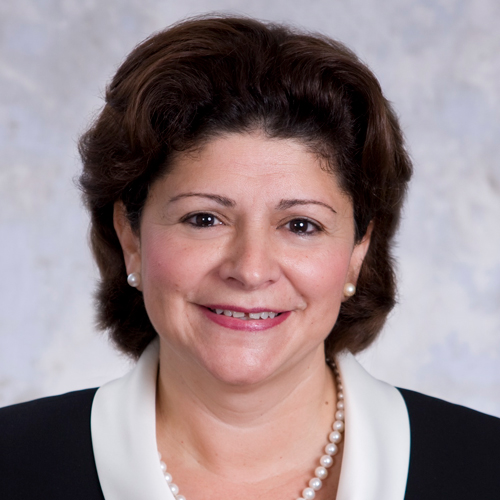
CMRP, CPPB, CPSM, Senior Vice President of Strategic Sourcing & Supply Chain Management/Chief Procurement Officer, Jackson Health System, Miami, Florida
The Journal of Healthcare Contracting: What are the characteristics of a successful supply chain leader in today’s marketplace?
Rosa Costanzo: Today’s marketplace requires a successful supply chain leader to maneuver uncertainty quickly and effectively. With COVID-19, we have to constantly improve our supply chain resilience. We have to think differently, optimize and utilize vendor and supplier relationships, act swiftly, exhaust all our change management skills and flex our procurement muscle. Today’s supply chain leader must have all hands on deck to improve resources, availability of equipment, PPE, patient care supplies, cleaning supplies and medications.
JHC: What is the most interesting/challenging project you’ve worked on recently, or an initiative you look forward to working on?
Costanzo: The COVID-19 pandemic has been the most challenging project. The impact is not over yet and we continue to evaluate lessons learned and strategically plan for the next surge, pandemic or crisis. The impact on the global supply chain has been tremendous and continues with many of the commodity medical surgical supplies back-ordered due to port congestion, transportation delays, truck and factory labor shortages, demand increases and original equipment manufacturer process challenges. Supply demand continues to outpace historical usage, and medical device manufacturers were not prepared to mitigate the risks of severe product shortages for the healthcare market. I look forward to full adoption of global unique identification standards for products. This will support and help address product transparency and data-driven planning and forecasting for healthcare in the future.
JHC: What advice would you give to other women who are pursuing careers in supply chain?
Costanzo: Pursue and invest in your own professional development. Specialization and global supply chain certifications will go a long way to give you an equal standing in any group discussion. This is important since supply chain historically has been a male-dominated industry. Be a role model and present yourself in a manner that demonstrates consistent professionalism.
JHC: How do you continue to grow and develop as a leader?
Costanzo: I believe very strongly in personal professional development. This can be participating in conferences, seminars, joining peers on panels, reading on leadership, self-improvement books, as well as listening carefully to what others share as opportunities. I try to constantly update my skills and look for areas that I can improve. I try to learn all I can and keep learning every day. My goal is to be the best role model I can for all and help others grow and accomplish their goals. Integrity and self-discipline are very important for me.
I am committed to helping others develop and get to their goals. I feel the best when I see an individual I have worked with closely become a great leader and be recognized for their success and commitment. My goal has never been to advance myself, it has been to do the best I can while helping others advance and move up as high as they can. I constantly share my leadership experiences and key incidents in my career with my direct reports to help them reach their effectiveness and leadership potential.
Haley Addis
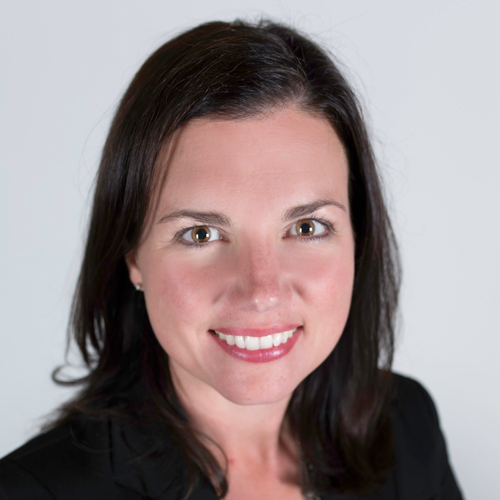
Pharm.D, Vice President, Clinical Resource & Account Management at HealthTrust
The Journal of Healthcare Contracting: What are the characteristics of a successful supply chain leader in today’s marketplace?
Haley Addis: In today’s marketplace, supply chain leaders must be flexible, adaptable, innovative, focused, persistent and resilient. Market dynamics including supply and raw material shortages, price inflation, logistics issues and labor shortages will continue to challenge supply chain leaders. The characteristics noted above are essential to future success as we look to mitigate supply disruption and control costs.
JHC: What is the most interesting/challenging project you’ve worked on recently, or an initiative you look forward to working on?
Dr. Addis: COVID-19 created challenges unlike any I have experienced in my career. I had the opportunity to lead a team responsible for sourcing of PPE and critical supplies for a large healthcare organization. Members of my team were repurposed to focus on responsibilities where they had no previous experience. It was rewarding to see how willingly team members accepted new responsibility and stepped up to the challenge and how effectively we worked together to support our customer, providers and patients.
JHC: What is the best piece of wisdom/advice you’ve received in your career?
Dr. Addis: I had a colleague who was trying to decide whether he wanted to apply for an open position as a department director. This was after the department had been through multiple leadership changes. He concluded that he would rather take the lead than work for a bad leader. He ended up being one of the best leaders I have had the privilege to work with.
I have frequently reflected on this. I have had the pleasure of working for many great leaders. I have also experienced first-hand the negative impact of a bad leader to organizational culture, employee morale, productivity and results. The wisdom I gleaned is to be courageous, be willing to take risks, step outside of your comfort zone, and always strive to be great and do what’s right for your team.
JHC: What advice would you give to other women who are pursuing careers in supply chain?
Dr. Addis: Build relationships and surround yourself with great women – and great people – who inspire you. I have experienced the gift of having women mentors that have helped me grow not only professionally but also personally. I would also encourage women who are pursuing careers in supply chain to pay this forward by mentoring other women. I have two daughters and this is the advice that I share with them.
JHC: How do you stay motivated despite conflicts and obstacles?
Dr. Addis: The mission of our organization is, “Above all else we are committed to the care and improvement of human life.” While I may not be directly working with patients in my current position, I understand how the work we do impacts patients and those caring for them. If you keep the patient front and center and stay focused on always doing what is right for the patient, you will find the motivation to overcome any conflict or obstacle.
Jessica Daley
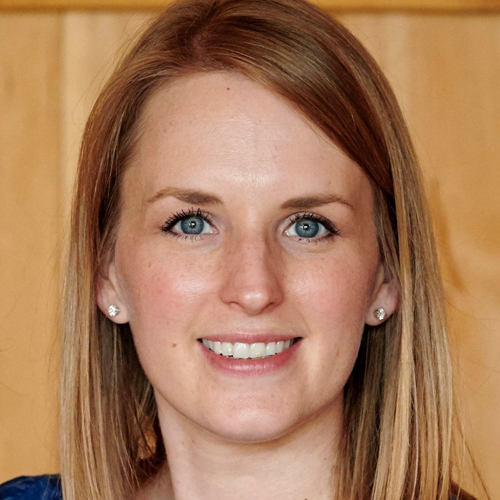
Chief Pharmacy Officer and Group Vice President of Supply Chain at Premier Inc.
The Journal of Healthcare Contracting: What’s the most challenging or rewarding project that you’ve worked on in the last 12 to 18 months?
Jessica Daley: It goes without saying that the most significant challenge over the last 12 to 18 months has been navigating and managing the ongoing COVID-19 pandemic – ensuring that our members, patients and the broader U.S. healthcare market have access to critical medications and factual information to support operations.
The pandemic demonstrated in no uncertain terms that building healthier communities and achieving meaningful, sustainable change in pharmacy (and across healthcare) requires a focus on long-term resilience, unique partnerships, strategies to scale quickly and efficiently, and data and evidence.
I’m proud to say that Premier and our members are leading the way to both address the challenges brought on by COVID-19 and drive innovation for the future. Together, we’ll continue to co-develop solutions that enable healthcare providers to deliver on their mission of providing the highest-quality care at a better cost.
JHC: What project or initiative are you looking forward to working on?
Daley: Drug shortages have been pervasive for more than a decade – well before COVID-19’s onset. For our part, Premier has been a leader in stabilizing the generic drug supply chain through innovative programs like ProvideGx and our newest domestic manufacturing collaboration with our members and Exela Pharmaceuticals.
Through these initiatives, Premier members are leveraging aggregated demand via a “buyers’ club” strategy – giving drug manufacturers proper demand signaling, predictable revenue and the surety needed to ramp up production or enter new markets.
The value of this model is on full display amid a pandemic or other crisis. Premier members have weathered demand spikes of 150 percent or more since March 2020 – with limited interruptions in supply. And the ProvideGx program is having a long-lasting impact on the industry overall, as 15 products added to the program have subsequently been delisted from the U.S. Food and Drug Administration (FDA) drug shortage list.
I am looking forward to continuing to grow these exciting opportunities for Premier members to gain better control over their pharmaceutical supply chains while also pursuing new innovative partnerships and programs in the near future. No other GPO does as much as Premier to protect patients from devastating drug shortages, and it is an honor to help lead the market alongside our members.
JHC: What changes brought about by the pandemic are here to stay with respect to the supply chain?
Daley: Healthcare is often slow to change – when other industries advance, it often takes healthcare time to catch up.
The pandemic drove accelerated digital transformation in healthcare – telemedicine, remote work, home-based patient care – these are all trends that are here to stay and are not only patient satisfiers, but employee satisfiers. For the supply chain specifically, COVID-19 was the wake-up call that real change is necessary across the supply chain information technology (IT) ecosystem, beginning with access to robust and timely data.
Early in the pandemic, Premier created a near real-time technology system to gain visibility into hospital inventory down to the SKU level, including stockpiles. Overlaying clinical and supply chain data has enabled both our members and the public sector to see where supplies are stocked as well as gaps in resources. Beyond supply chain management, PINC AI technology is giving pharmacy leaders a leg up to thrive in today’s healthcare environment – with tools for utilization support, clinical decision making, budgeting and cost savings.
As one example, and with data on COVID-19 treatments still emerging, Premier members are leveraging clinical decision intelligence to help determine drugs’ appropriate use and make evidence-based care decisions that best serve patients. These tools are particularly useful in a pandemic, where clinical management of a disease continues to evolve and can outpace the initiation of new clinical trials. Influencing clinical practice change with data, Premier members are generating savings by service line while maintaining or improving quality.
JHC: What are the most important attributes of successful leaders today?
Daley: Flexibility. The environment that we work and live in has presented leaders with constant challenges, and leaders are expected to take on more responsibility for the success of increasingly complex organizations.
From strategic to tactical to transactional to analytic to sales to customer service, internal to external-facing, professional to casual – leaders must be comfortable making quick decisions and changes to effectively manage their scope of influence and responsibility.
With remote work and virtual meetings, there is fewer down-time to prepare for these quick changes. Not even a walk between meeting rooms gives a leader the time they need to prepare for their next task – today’s successful leaders have to be ready to think on their feet and pivot at a moment’s notice.
JHC: What one thing makes you most proud?
Daley: I am most proud of my team and my relationships with my employees and colleagues. I am passionate about coaching and mentoring employees by truly focusing on their skills and harnessing their passion – working to collectively create a vision for the future.
Focusing on a clear and honest review of employee needs, goals and skills, helps employees find purpose and joy in their work and provides a sounding board for big ideas and big challenges. That is what creates a high performing team with high performing employees. It is hard for anyone to find time in our busy work lives to really listen and provide real coaching, but the rewards of a more engaged and successful team are more than worth it – and something to be very proud of.
JHC: What’s the most important risk you took and why?
Daley: I don’t like to categorize actions as risks, but strategic opportunities. Throughout my career I have taken advantage of strategic opportunities that have brought me to where I am today. For instance, investing time and money in a pharmacy education when I already had a well-established career in commercial pharmaceuticals, or leaving my career in the pharmaceutical industry to pursue a new opportunity in supply chain at a health system, or taking on a leadership role at a GPO during a global pandemic.
These were all important strategic opportunities that took me outside of my comfort zone and challenged me to grow and stretch my career. The real risk isn’t in accepting the unknowns, but in never knowing what important lessons or skills you missed out on by not taking the “risk.”
Pam Esper
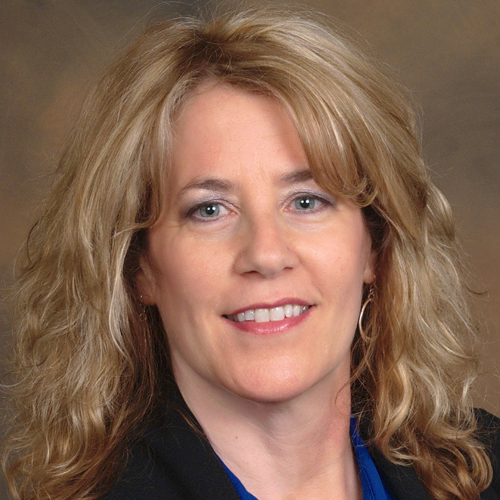
Executive Director Strategic Sourcing & Contracting, Supply Chain Management, Piedmont Healthcare, Atlanta, Georgia
The Journal of Healthcare Contracting: What are the characteristics of a successful supply chain leader in today’s marketplace?
Pam Esper: Our leadership philosophies often come from those we’ve worked with or for, incorporating the good and avoiding the bad. What I’ve woven into my leadership values are a core few. Hire good people, it’s central to success. Share what you know and have learned over the years, they’ll listen. Give your people room to grow, listen to their ideas, let them fix problems. Lastly, say “thank you” – as much as people want a paycheck, they want to be appreciated.
Using these guidelines, I’ve watched my teams crush goals, meet crazy deadlines and move on to lead their own teams.
JHC: What is the most interesting/challenging project you’ve worked on recently, or an initiative you look forward to working on?
Esper: COVID hit everyone in healthcare for a loop with the initial outbreak in March 2020. As a result, finances took a hit, revenue from procedures was off, cost of goods and supplies were rising, along with unplanned expenses like setting up testing sites and expanded treatments areas.
After the initial surge in May 2020, leadership at Piedmont asked that all areas start looking at cost reduction opportunities. Supply Chain stepped up with what we call “Back to Budget.” Working with my team and collaborating with Vizient, our GPO, we created a pipeline of opportunities, identifying a savings goal of $47 million in operational savings, which we split into three phases. The ask was that these savings start during fiscal year 2021 in order to impact that year’s budget.
We took the 50-plus initiatives, dug into the data, worked with our Clinical Governance Councils to set strategies, and then started reaching out to the vendor community. Along the way to achieving this goal, the distractions of COVID continued; securing PPE, managing the random supply disruptions that continue to surface and support for employee/patent vaccine clinics, just to name a few.
By the fourth quarter we had hit about 93% of the $47 million. While it might seem like we missed the goal, it was very ambitious. Normally the goal would be $35 million over two years. I’d say it was interesting and challenging, and we achieved the remaining in early FY22.
JHC: What is the best piece of wisdom/advice you’ve received in your career?
Esper: Be resilient. Nobody goes through life without challenges, setbacks or unplanned events that introduce stressors into our lives. There is a quote – “Life isn’t about waiting for the storm to pass, it’s about learning to dance in the rain.” I was able to witness my friend and mentor Steve Roberts live this through his approach to some serious health issues he faced, he kept his sense of humor and used his experience to help others. Steve would remind me that challenges are opportunities just waiting for us, but you have to be ready to recognize them. He was right; twice in my career I’ve faced a pivot, and each one provided the chance to grow.
JHC: What advice would you give to other women who are pursuing careers in supply chain?
Esper: Be prepared. Seek out individuals who can help you learn about the company or industry. The principles of Supply Chain are the same but are applied based in regulatory requirements, industry risk and supply base. Be the most knowledgeable person in the room.
JHC: How do you stay motivated despite conflicts and obstacles?
Esper: I get to come into work every day and know I make a difference in people’s lives. No, I’m not in direct patient care, but I know I’m doing my part to support those caring for our patients and their families. I’ve been given the opportunity to use my gifts to serve others, and that keeps me showing up every day.
JHC: What one thing makes you most proud?
Esper: How the entire Piedmont Supply Chain Team, Sourcing, Value Analysis, Operations and BioMed stepped up to the challenge that COVID has presented to us these last 20 months. The collaboration and coordination to get supplies in and delivered to where they were needed at times felt herculean. We did and continue to do so, delivering on our mission to support our clinicians and patients.
Shaleta Dunn Vick
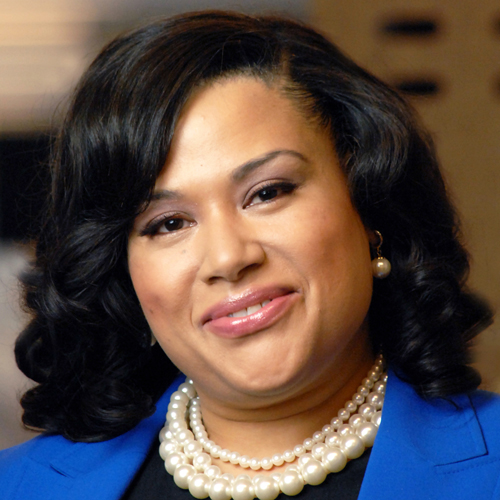
Associate Vice President, Member Diversity and Community, Vizient, Inc.
The Journal of Healthcare Contracting: What are the characteristics of a successful supply chain leader in today’s marketplace?
Shaleta Dunn Vick:
- Continual, intentional learners
- Advocates for innovation and creativity to cultivate greatness in their operations and employees
- Conscious of their responsibility, casting as wide a net as possible in sourcing activities
- Unafraid to fail, providing grace for others to do the same, to learn critical lessons
- Vulnerable enough to share and seek feedback
- Awareness, including personal, organizational and industry-specific
- Unafraid to challenge the status quo with consistency and insight
- Collaborator
- Change management skills
- Influence without authority
JHC: What is the most interesting/challenging project you’ve worked on recently, or an initiative you look forward to working on?
Dunn Vick: I had the opportunity to launch and pilot Vizient’s Community Contracting Program (CCP) and to now lead the expansion and implementation of the program nationally. CCP enables member health systems to leverage their economic power to address social disadvantage by shifting supply chain purchases to support local businesses, particularly those owned by minorities, women, LGBT, veterans, and disabled individuals. To support Vizient members in achieving their diversity and inclusivity supply chain goals, Vizient had to first develop, shift, and implement a transformation within our own sourcing and field operations that took a great collaborative effort across the entire organization. In the end, CCP will positively impact member patient populations, locally based diverse suppliers, supply resiliency, and the communities we live in and serve.
JHC: What is the best piece of wisdom/advice you’ve received in your career?
Dunn Vick: Always assume the best intentions in others and learn how to thrive amid adversity and challenges.
JHC: What advice would you give to other women who are pursuing careers in supply chain?
Dunn Vick: I spent a lot of time with my grandparents while growing up. On Saturdays, my grandfather and I would head to Maxwell Street in Chicago where vendors congregated to sell their products. Maxwell Street vendors were relatively diverse because the street itself connected to so many different immigrant communities and one could purchase everything from tires to blue jeans to fresh fruits and more. My grandfather knew every one of the vendors well and developed friendly relationships with all of them. Oftentimes, the vendors accessed products that were shared only with specific customers, my grandfather included. They would present their case for the product, share its value and how it was “specially” sourced based on past discussions or something similar. From there a conversation on pricing would take place and a continued back-and-forth until they came to an agreement, whether it was to purchase, delay, or to decline. Each time, however, we left the vendor on a positive note and each time the interaction ended with, “Until next time, my friend, my brother.” As a young girl at my grandfather’s knees, I learned several important factors that supported me in my pursuit of a career in supply chain:
- Respect your vendors and suppliers
- Find mentors in everyone
- Be known for your integrity and then create a culture of integrity in your teams
- Learn all aspects of the business because your choices, especially in supply partners, ultimately affect the business
- Bring others along, especially other women AND especially other women who don’t look like you
- Ask questions and be a clear communicator
- Deliver on your promises
- Be THE disruptor
- Identify your WHY and how it connects to your passion because there will be days ahead that you’ll need to rely heavily on it
- Be entrepreneurial and develop a business plan with each supply partner
- Surrender your ego
JHC: What is one decision you wish you didn’t make?
Dunn Vick: I attended an event for women-owned businesses in Chicago where Oprah Winfrey was the featured speaker. I was beyond excited. I wanted to tell Ms. Winfrey about the successful impact young women of color were having on our communities and that having her to look up to as an example made our work accomplishable. Ms. Winfrey was incredible – insightful, vulnerable and inspiring. When she opened up the engagement for questions, I thought, “This is my opportunity!” Unfortunately, my feet didn’t get the message. Person after person approached the microphone in the audience and asked a question, but my feet decided at that moment to be stubborn, and the rest of my body agreed with them.
The event ended and I missed my opportunity to meet Ms. Winfrey. It’s a disappointment that I think of whenever nerves or doubts bubble up inside me. Over the years, I’ve been able to turn that moment of failure into a positive, a way to inspire myself to accomplish goals. I now use that memory to recognize fear that might be holding me or a colleague back, and to also inspire young women who I mentor.
JHC: How do you generate great ideas in your organization?
Dunn Vick: One of my favorite books is Blue Ocean Strategy, by W. Chan Kim and Renee Mauborgne. When I am introducing new ideas in my organization, I use the book’s strategy tools as a guide. They include creating and capturing new demand, creating uncontested market space, and breaking the value-cost trade-off, among others. These tools are integral to generating new ideas, but to use them effectively, an organization’s culture must be prepared to receive them. A culture of inclusivity or being “invited to the party” plays a critical role for great ideas to develop and thrive. We know this is true because being inclusive is one of Vizient’s core values, and as such, Vizient has done the work to live this truth. The next steps I use include:
- Listening to understand and then to identify options to provide a creative solution
- Strategizing to communicate, internally and externally
- Planning for collaboration
- Planning to deliver
I usually develop a high-level one pager that provides insight to an idea so that I can socialize it with stakeholders, mentors and trusted advisors. This allows me to gain information and to identify questions that I may have not thought of.
Nattie Leger
Vice President of Supply Chain Value and Clinical Performance, Ochsner Health, New Orleans, Louisiana
The Journal of Healthcare Contracting (JHC): You’ve had extensive clinical and nursing experience prior to your time in supply chain. Can you talk about the benefits of having that experience?
Nattie Leger: My responsibility at Ochsner is to lead clinical supply chain or the clinical integration of supply chain. I believe it’s critical to have a clinical and nursing background because it provides me with the ability to evaluate situations through a different lens. Seeing through a clinical lens allows me to see how our Supply Chain decisions will impact our clinicians and patients. For example, when I’m partnering with our sourcing team on executing a contract, I can add clinical content that could have impact downstream with our clinicians or the patients that we serve.
In addition, my clinical experience enhances my ability to collaborate with clinicians in the pursuit of triple aim initiatives, focusing on quality, patient safety, clinical outcomes, while being financially responsible and good stewards of our resources.
JHC: Moving forward, what project or initiative are you looking forward to working on?
Leger: The past year and a half has been the most challenging period that I’ve experienced in my career. In 2005, I went through Hurricane Katrina, but with a global pandemic topped with Hurricane Ida this year, now this was a huge curve ball. As we move on from a reactionary response to the pandemic and hurricane we are shifting and working on several key initiatives.
We’re integrating with other health systems to become stronger and able to provide services to a larger number of communities. We recently merged with a health system in Southwest Louisiana. Our vision at Ochsner is to be able to provide healthcare to all of Louisiana and reaching out to the Gulf Coast. Our mantra as we go forward with Ochsner Health is not only focusing on acute care, but how do we increase optimal health in our community?
If you look at the health statistics, Louisiana usually ranks as the 49th or 50th state because we have a large percentage of low-income citizens with health issues and an inability to access health care. So, our population health isn’t the best. Ochsner has taken on the challenge “40 by 30.” By 2030, the goal is to move Louisiana from 49th or 50th to at least the 40th state in the rankings. And how does our healthcare supply chain impact that?
Supply Chain is partnering in this initiative, by reaching out into our community and working with local and diverse companies to become Ochsner vendors which in turn improves our community. In addition, Supply Chain supports the local community-based facilities that are providing high-quality care to our at-risk populations.
JHC: What characteristics are key for supply chain leaders to see success for themselves and their departments?
Leger: I believe whether you’re in supply chain or another division, you must be a servant leader and be humble. You must be resilient, stay positive, be a good listener, communicator, and a visionary. And you cannot shy away from difficult situations.
Those are some key characteristics you must have, whether you’re dealing with a pandemic or the global disruption supply chain, which is just as traumatic right now. Embodying these characteristics will set you up for success.
JHC: How do you continue to grow and develop as a leader?
Leger: There are always opportunities to grow, but you must seek and embrace the opportunities. Some examples are being well-read and seeking the advice from people in other leadership positions, inside and outside of healthcare. Then I incorporate these new strengths into my leadership style and development.
Years ago, as a clinical leader, I learned an important fact about appropriate communication skills from the airline industry. For example, how often do you want planes to take off and land safely? Is 80% of the time OK? Is 90% of the time OK? Or are you looking for that 100% of the time?
To avoid miscommunications, the airline industry identified that the pilot and tower had to be sending and receiving the same communications with each other to avoid crashes. So, when I am communicating with individuals, I want to ensure I am receiving and sending correct information to avoid any miscommunications, because my miscommunications could put patients at risk.
JHC: How have you managed to stay motivated despite all the disruptions and challenges?
Leger: It’s been extremely challenging time. In addition to all the disruptions, there was an added stress of not wanting to fail your clinicians during the pandemic. If you failed to secure PPE that was needed, not only were you failing your clinicians in their job, but you were also putting them at risk for injury or death due to their exposure to COVID. Our ultimate responsibility in healthcare is to our patients. But with COVID, it gave you an even greater challenge of responsibility to your clinicians. And failure was not an option.
So, during these extreme times, you must stay strong and focused to be able to lead your team. First, you must take care of yourself before you can take care of others. Stay positive, identify the small wins, and know your lines of support. It takes a village to accomplish great things.
